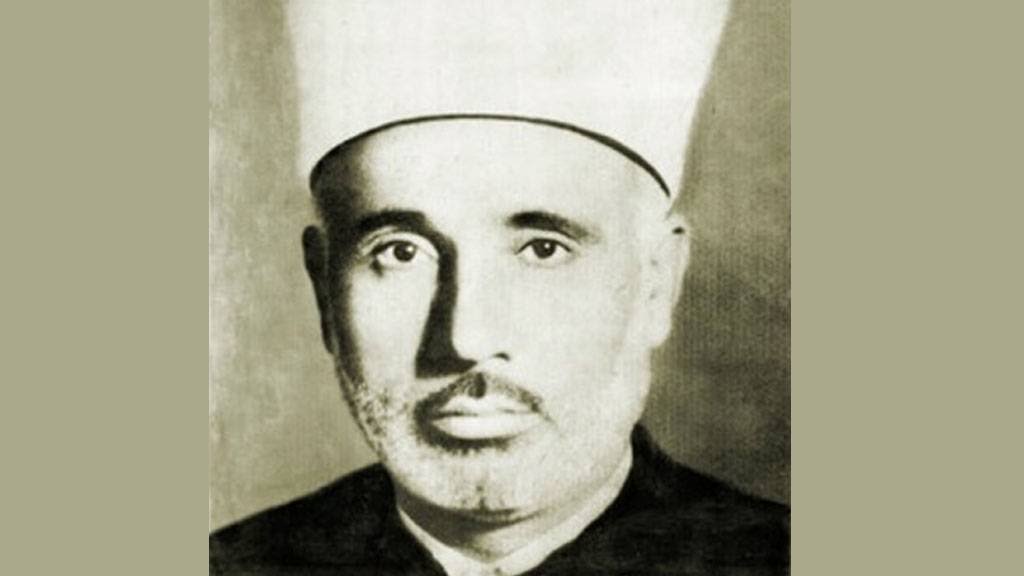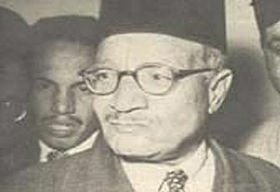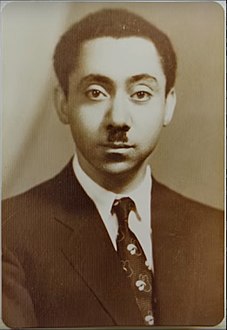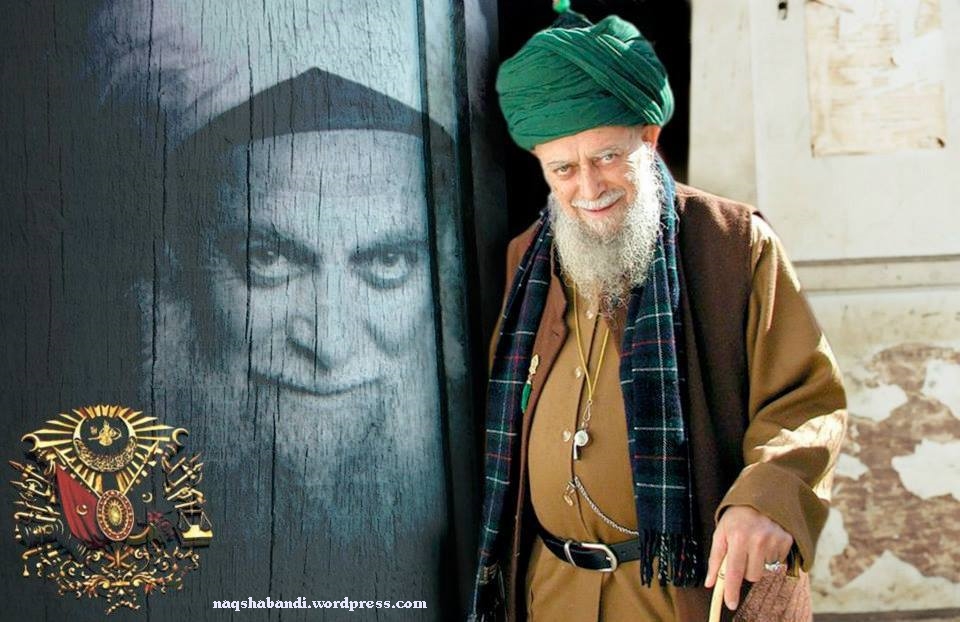Ayatollahs and Murshids: The Secrets of Political Islamists Organizations and their Unspoken History
by Khaled Hamoud Alshareef
These Islamist Groups are in contrast to the purpose of Islam…
Since the emergence of political Islamists groups, whether those who adopted a violent or covert approach to it, the founding fathers of every Islamist group have gained a God like status, which qualified them in all cases to assume the leadership position until death, absolute obedience is a basic undisputed right to those leaders.
Though methods may differ from one team to another in the post between acclamation and secret election, or even inheritance as is the case with the Sufi orders, which is attributed by specialists in studying these gatherings, due to the different directives and goals for which each organization was created.
The matter is sometimes governed by the nature of the organization as well, whether secret or covert, or if the two are together, as is the case with the Muslim Brotherhood for example in addition to the form of the organization and the method of selecting members, whether by secret recruitment or other methods, the powers enjoyed by leaders in Islamic organizations, especially jihadist ones, differ, although everyone has almost the same status.
According to what the former leader of the “Egyptian Jihad” Nabil Naim says, while indicating that the leader has a central and authoritarian role in the whole matter.
The beginning “The Seed of Satan to Establish the Islamist ideology to revive the Caliphate”
Before the Arab societies knew the Islamic parties in their current form after the wave of the Arab Spring, the Palestinian judge Taqi al-Din al-Nabhani established “Hizb ut-Tahrir” in the early fifties of the past century, based in Jerusalem.
Al-Nabhani was planning his party to be the “spearhead” for the restoration of the Islamic caliphate, and for that it set rules for a tight list of positions in which the positions would be hierarchical but like other Islamist groups he was plagued by internal disputes, and a clash with the central governments, in addition to poor visibility and lack of resources.
The party did not differ much in the internal leadership gradients. Since its founding in 1953.
Al-Nabhani considered himself “the founding prince” and remained the leader of the party until his death in 1977, and despite the party’s setting of specific mechanisms for leadership, it did not protect it from cracking, and differences broke out quickly between Al-Nabhani and his closest deputies – Dawood Hamdan and Nimr Al-Masry.

The members who participated in the group establishment protested the founding emir’s desire to infiltrate Syria, in order to be a safe haven for those being prosecuted in the rest of the Arab countries, and thus the group failed in its first test after Al-Masry and others left the party.
After his death the party was brought as an offshoot into the fold of the Muslim Brotherhood.
The constitution of the Internal Liberation Party, consisting of 187 articles, divides the countries of the Islamic world into emirates. Each emirate is governed by a committee composed of several people called the “state committee”, and there are other committees, each of which supervises a specific city or region called “the local committee.”
The party shall be named the head of the committee in each country by the accredited person, and all committees shall follow the leadership committee, which is chaired by the head of the party, in accordance with the internal group laws.
The Muslim Brotherhood benefited from this model, and when the party was banned in many countries the followers swiftly moved into the complete fold of the Muslim Brotherhood except in Lebanon as a shell of its former self.
“The Muslim Brotherhood” influence is the driving force of the Murshid selection.
Internal conflicts led to the near downfall of the Muslim Brotherhood in the 1950s, and this been suppressed ever since, Alhudaibi assumed the absolute control of the group’s reins.

He took over the group in a difficult time since he had to play an elaborate game of alliances and betrayals with Gamal Abdel Nasser plus the rising of the secular Pan Arabs in Syria and Iraq who despised the Muslim Brotherhood.
Although the Brotherhood’s General System Document, issued in 1982, gave its members the right to choose their leaders, Article 34 of the Brotherhood’s Articles of Association eliminates this principle whereby the Murshid’s selection is limited to the founding body of the MB, which makes up the General Assembly of the Guidance Bureau, and stipulates that the Murshid must also be from the constituent body, and be a working member of it for a period of 15 years.
The group’s internal regulations stipulate the principle of trust vote cycle every six years, but this did not happen for renewal of trust in the Murshid who continued by acclamation, until 2010, when Muhammad Mahdi Akef stepped down as the group was stepping up its politics.
The group was aiming to be appealing to the West, many prominent members of the group left the political scene despite taking the lead in the covert scene, most notably former deputy leader Muhammad Habib, Abdel-Moneim Abu al-Fotouh, and al-Kharbawi, and Kamal al-Hilbawi.
Muhammad Badi, succeeded his close friend of the former Murshid , Muhammad Mahdi Akef, both were students of the Muslim Brotherhood spiritual father Sayyid Qutb, who was executed by the Egyptian Government under Gamal Abdel Nasser in a military trial in Egypt in 1965.

The Sheikhdom
The mystic inheritance of fraud and a financial driven spirituality anxiety is not known to the hearts of the Sufi sheikhs as a way; not because they have a spiritual state that deepens the feeling of reassurance within them – as they describe themselves, but because they guarantee their absolute loyalty to the utmost degree, under the clause of blind obedience from the aspirant to the Sheikh of his method. And among the Murids, a few turned away from the swarm of blind obedience.
None dared to discuss spiritual matters and faith with their Sheikh. Regarding the Sufi orders, which are Soufisum is one of the most widespread religious organizations in the Islamic world, things are a bit different and unique if I dare say.
Unlike the Muslim Brotherhood, the Sufi methods, which are the oldest “Sunni” gatherings apparently, do not have hierarchical administrative structures, and the principle of inheritance is dominated by leadership, but this is considered an alien principle to these groups is mystical spiritual in nature similar to what was in the Ottoman Empire and the Mogul empire in later stages.
“At the beginning of the establishment, the Sufi orders did not adapt the principle of inheritance in the succession of their leaders , so that Abu Al-Hassan Al-Shazly founder of the most widespread Sufi orders in Egypt and the world was not succeeded by one of his sons.”
Diaphragm a unique case
The method of selection is almost the same in most of the Sufi orders except in the Al-Ghazafiya method, which is one of the methods emanating from the Shadhliya, and it was founded by the Mauritanian Sufi Muhammad al-Aghazif bin Al-Daoudi.
This method is distinguished in that its sheikh is chosen from those who fulfill the conditions of knowledge and integrity, but opponents of this method in choosing leadership believe that inheritance saves the Sufi paths from divisions and protects them from conflicts.

The Sufi movement armed fighters in Africa and many other countries of the world, are large forces practicing armed action, the most important of which are three armed movements, such as the organization of the Sunnis and the Jama’at in Somalia, the Army of the Moridian method in the Senegal, and the Army of the Naqshbandi Order in Iraq, which fought The American invasion of Iraq and then formed alliances with the ISIS to fight it later on.
The men who lay claim to God-hood: the absolute dominance of the spiritually over life and politics. Religious reference is a Shiite concept that means the return of Shi’a Muslims to those who reached the rank of ijtihad and scholarly.
The Ayatollahs
The Ayatollahs claim all power in deriving legal rulings, and who became eligible for the position of Ifta, presidency, parliament, the council of scholars who select the Ayatollah’s successors. Ayatollah’s reserve the absolute right to voice his opinions in jurisprudence in a book called the practical message expressed as (religious reference) or (Grand Ayatollah) In the Shi’a term, Shiites refer to Marjia or references to tradition in order to know the jurisprudential rulings.
The influence of the Ayatollah extend to interference in political and social issues, as has happened repeatedly in the history of the Shiite authority. And the reference is a student of religious sciences who studied in the seminary (Najaf and Qom often).
What the Shiite Hadith books narrated from Imam al-Mahdi, the last of the Shi’a imams, from his saying: “As for the incidents that occur, refer to the narrators of our conversation, for they are my Hajj against you and I am the Argument of God.”
Therefore the Ayatollah means the word of God, they are considered a physical embodiment of God’s word, God’s word is absolutel, thus the Ayatollah’s are absolute.
These Islamist Groups are in contrast to the purpose of Islam, to worship God in a very intimate relationship between God and the believers of God’s monotheism.
Khaled Homoud Alshareef holds PhD in Business and he earned Masters in Philosophy. He often writes about Islamism, Islamist factions and modern Terrorism. He tweets under @0khalodi0.



